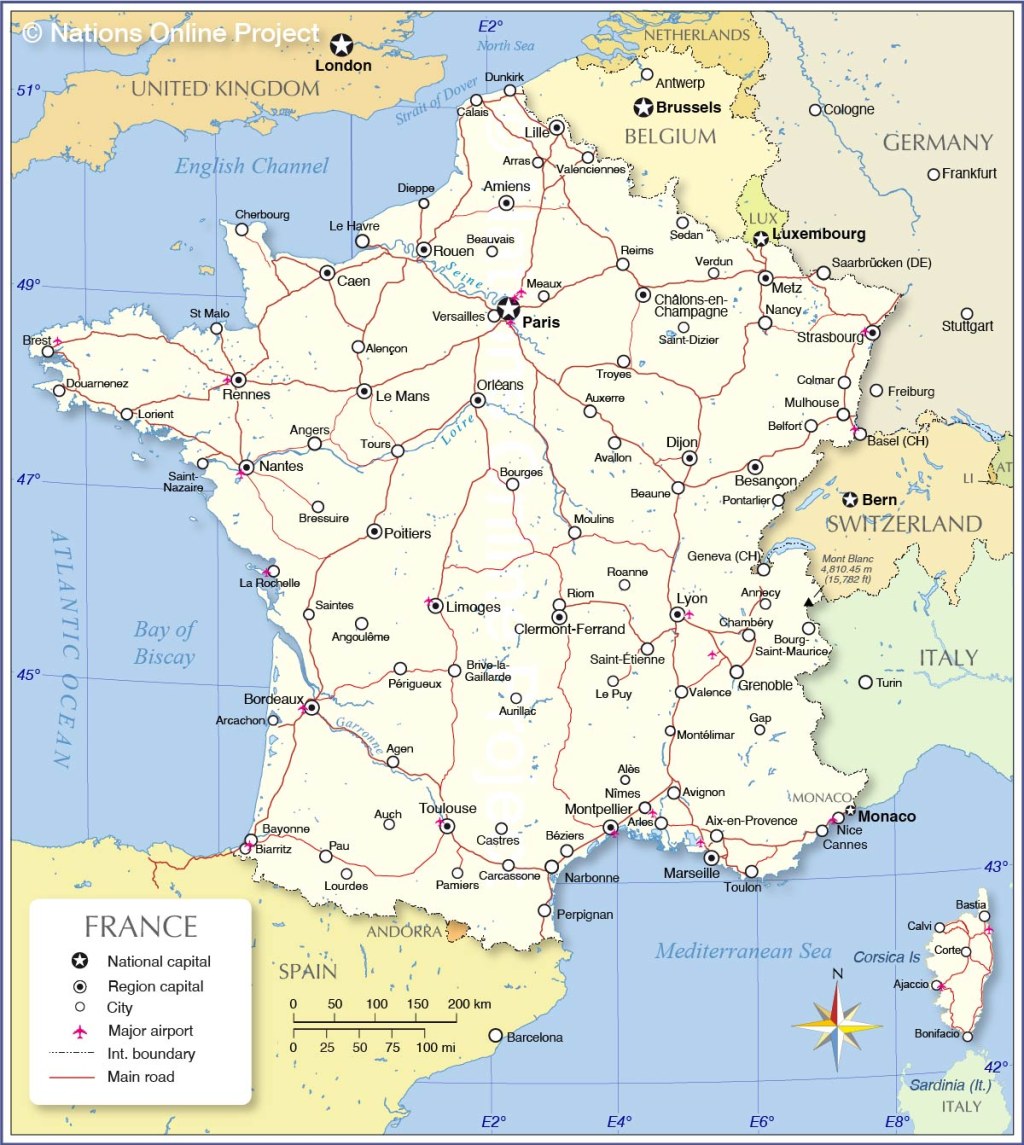France Political Geography
Welcome, readers! In this article, we will delve into the fascinating world of France’s political geography. As one of the most influential countries in Europe, France’s political landscape plays a crucial role in shaping not only the nation itself but also the entire European Union. Join us as we explore the various aspects of France’s political geography and gain a deeper understanding of this captivating nation.
Introduction
France, officially known as the French Republic, is a country located in Western Europe. It shares borders with several countries, including Belgium, Luxembourg, Germany, Switzerland, Italy, Spain, and Andorra. The country is renowned for its rich history, cultural heritage, and contributions to art, science, and politics. With a population of over 67 million people, France is the second-largest country in Europe.
1. What is France’s political system like? 🏛️
France operates under a semi-presidential republic system, combining elements of both presidential and parliamentary systems. The President of France serves as the head of state, while the Prime Minister heads the government. The Parliament consists of two chambers: the National Assembly and the Senate.

Image Source: nationsonline.org
2. Who are the key political figures in France? 👥
As of 2021, Emmanuel Macron serves as the President of France. He was elected in 2017 and is known for his centrist policies. The Prime Minister, Jean Castex, was appointed in 2020. Other notable political figures include members of various political parties such as Marine Le Pen of the National Rally and Jean-Luc Mélenchon of La France Insoumise.
3. When did France establish its political system? 📅
France’s political system has evolved over centuries. The French Revolution in 1789 marked a significant turning point, leading to the establishment of a democratic system. Since then, France has experienced periods of monarchy, empires, and republics, shaping its current political structure.
4. Where are the administrative divisions in France? 🗺️
France is divided into 18 administrative regions, including 13 metropolitan regions and 5 overseas regions. Each region has its own local governments, and they play a vital role in regional development, governance, and decision-making.
5. Why is France’s political geography significant? 🌍
France’s political geography is of great importance due to its influence on not only the country but also the European Union. France is one of the founding members of the EU and plays a crucial role in shaping its policies, economy, and international relations. Understanding France’s political geography helps comprehend the broader dynamics of European politics.
6. How does France’s political system function? 🔄
France’s political system operates through a series of checks and balances between the executive, legislative, and judicial branches. The President appoints the Prime Minister, who forms the government. The Parliament enacts laws, and the judiciary ensures their enforcement. Additionally, France is a member of international organizations like the United Nations, NATO, and the G7, further influencing global politics.
Advantages and Disadvantages of France’s Political Geography
1. Advantages 🌟
France’s political geography offers several advantages. Firstly, its centralized system allows for efficient governance and decision-making. The strong presence of regional governments ensures effective representation and local development. Secondly, France’s influential role in the EU grants it significant political and economic leverage, strengthening its position on the global stage. Lastly, France’s political stability and commitment to democracy contribute to a favorable investment climate.
2. Disadvantages ⚠️
However, France’s political geography also presents certain challenges. The centralization of power in Paris can sometimes lead to a perceived disconnect between the capital and other regions. Additionally, the presence of multiple political parties can result in a fragmented political landscape, making it challenging to form stable governments. Balancing regional interests with national objectives is another complexity that France faces.
Frequently Asked Questions (FAQs)
1. What is the role of the President in France’s political system? 🤔
The President of France serves as the head of state and holds significant executive powers, including appointing the Prime Minister, representing the country internationally, and commanding the armed forces.
2. How often are presidential elections held in France? 🗳️
Presidential elections in France are held every five years. The last presidential election took place in 2017, and the next one is scheduled for 2022.
3. What are the main political parties in France? 🎊
France has several political parties, including La République En Marche!, National Rally, The Republicans, La France Insoumise, and the Socialist Party. These parties represent various ideologies and compete in national and regional elections.
4. How does France contribute to the European Union? 🇪🇺
France plays a vital role in the European Union by participating in decision-making processes, shaping policies, and contributing to the EU budget. It is also an advocate for closer integration among member states.
5. What are some recent political developments in France? 📰
Recent political developments in France include issues such as immigration, economic reforms, climate change, and social justice. These topics often drive political debates and shape government policies.
Conclusion
In conclusion, France’s political geography is a complex and influential force within Europe and beyond. The country’s political system, key figures, administrative divisions, and involvement in international organizations all contribute to its significance. Understanding France’s political landscape provides valuable insights into European politics and the broader global dynamics. As France continues to navigate its political challenges and embrace its advantages, its role in shaping the world will undoubtedly remain pivotal.
Thank you, readers, for joining us on this journey through France’s political geography. We hope this article has provided you with a comprehensive understanding of this captivating subject. Now, it’s time for you to explore further, delve into the intricacies, and continue to stay informed about the ever-evolving world of France’s political landscape.
Disclaimer: The information provided in this article is for educational and informational purposes only. The content is not intended to be a substitute for professional advice or official sources. Readers are encouraged to seek further information and consult relevant authorities for accurate and up-to-date details.